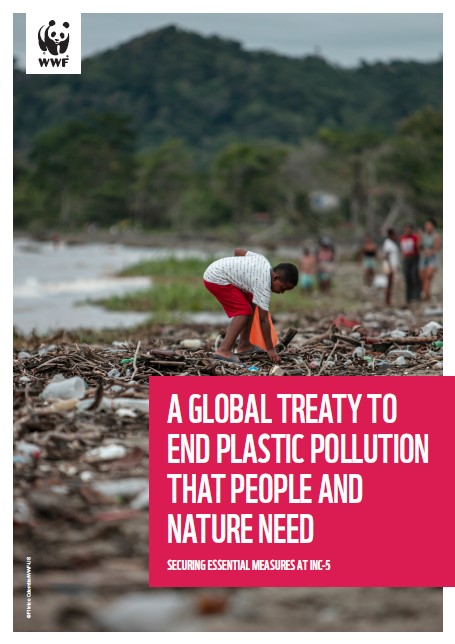As states prepare to gather at the fifth and final session of the intergovernmental negotiations on the global treaty to end plastic pollution (INC-5), plastic pollution continues to ravage our planet, destroying ecosystems and wildlife populations, fuelling climate change and infiltrating our bodies through the air we breathe and the food and water we consume. In the two years since the negotiations began, nearly 20 million metric tonnes of plastics have entered our ocean, adding to the vast quantities that have accumulated in nature since production began in the 1950s. And levels of plastic pollution will continue to increase year on year unless we secure an effective and just treaty to end plastic pollution.

To ensure that world leaders deliver the treaty that people and nature need, WWF has identified four essential elements that – as a starting point – states must secure at INC-5. As a priority, states must pursue binding, global obligations on the most problematic and concerning issues across the full plastic lifecycle, and the necessary means for all parties to implement them. Importantly, the treaty must be equipped to strengthen measures and expand states’ efforts over time. Overall, any agreement secured at INC-5 must stipulate a credible pathway toward reducing plastic production and consumption, and include specific obligations to eliminate the most problematic elements of the plastics value chain and ensure all plastic we continue to produce is safe to reuse and circulate.



